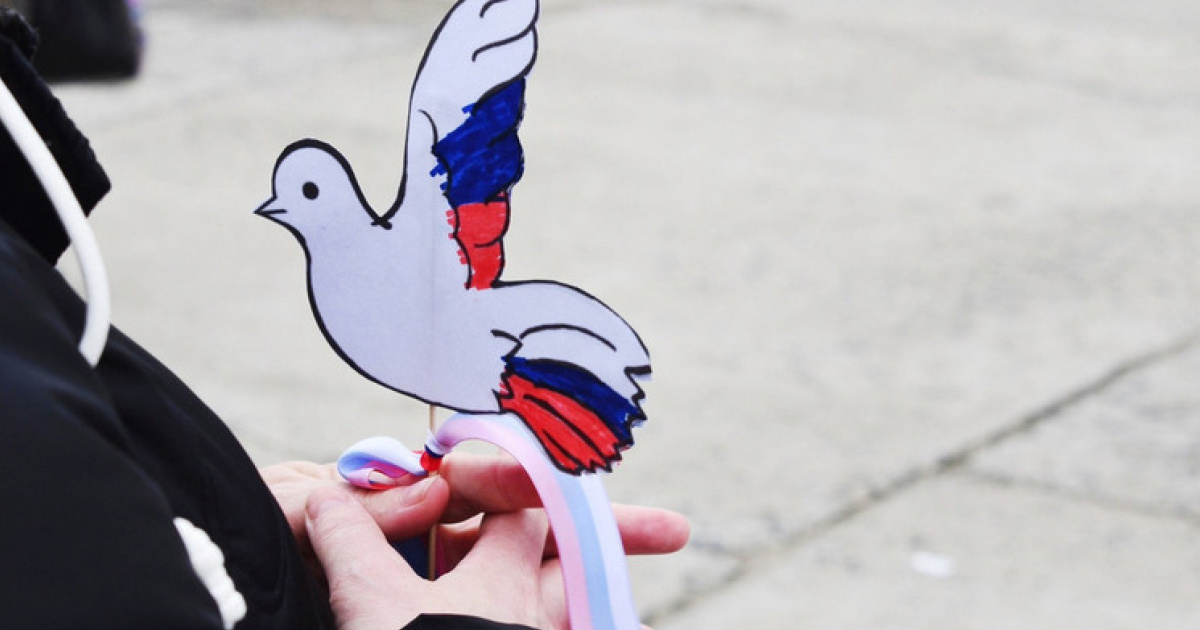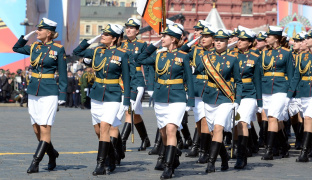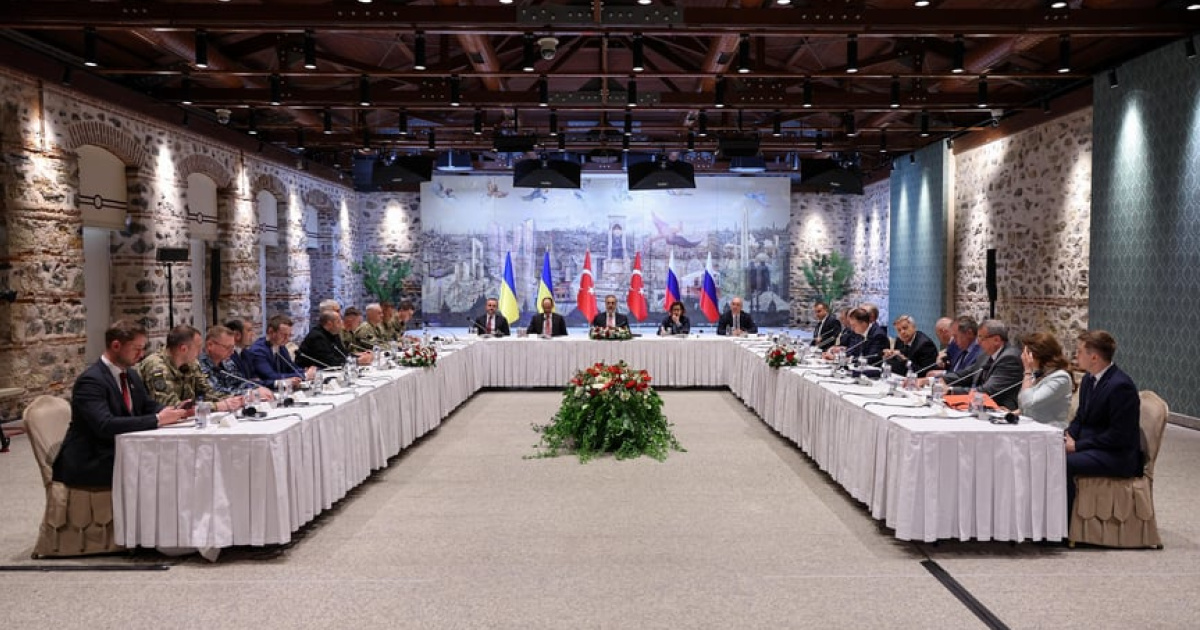Military experts predict that the liberation of Donbas will happen next year. However, according to the Commander-in-Chief of the Armed Forces of Ukraine Valerii Zaluzhnyi, at present, Ukraine does not have enough weapons even to reach the borders as of February 23, 2022...
Journalist and analyst Serhiy Harmash told OstroV about how life has changed in occupied Donetsk after "joining" russia, who benefits from shelling the city and whether it is worth hoping for the de-occupation of Donbas next year.
- Shelling of Donetsk has become more frequent lately. The occupiers traditionally blame the Armed Forces of Ukraine for this. In your opinion, who is shelling the city and why?
- Firstly, the increase in shelling of a city lying on the front line is quite natural due to the increased intensity of hostilities. Secondly, the question of who is shelling Donetsk is worth considering. Indeed, the Ukrainian army strikes ammunition storage sites, military equipment, areas of weapons and manpower accumulation of the enemy, which are located in the city. There are a lot of such clusters considering that Donetsk is located near the front line. They are also situated in residential areas. In addition, until the last couple of days there were "administrative bodies" of the occupation authorities located in the city center, which is now often shelled. Aren't they legitimate military targets? By the way, now both pushilin's administration and the "mayor's office" have been moved to the city outskirts.
Surely, both subjective and technical factors play a role. Most of our artillery still consists of Soviet guns, which are not ultra-precise weapons.
There is also the FSB factor. After all, we strike according to the tip of informants. Surely, there are cases of re-recruitment of our informants and their false target designation on civilian objects on the orders of the FSB. In any case, if we search for the end-beneficiary, the russian federation is clearly interested in killing civilians and shelling the peaceful infrastructure of the cities it occupies. Let's recall what it did to Mariupol or Sievierodonetsk...
- Do the russians themselves shell the city?
- If russia is interested in shelling, then it is clear that it is doing that itself first of all. We do not have enough shells to spend them on civilians because we are striking the military. However, civilians in Donetsk die almost every day. And only the russians have the motive, the means and the ability to fire at them.
- And what is the motive?
- Shelling of civilians allows russia to shout in the Western media that it is the weapons of our foreign partners that are killing civilians. This affects the perception of the war by the Western electorate, and, accordingly, by politicians. Moreover, the tactics of implementing this strategy is changing, which confirms the fact that such a strategy exists. If earlier, the "West" or the "NATO countries" were accused of shelling civilians, recently, pushilin has started to constantly emphasize that people were killed, for example, by Czech or Swedish shells, from French howitzers. That is, they saw that it was not effective to blame the abstract West, and began to work specifically with the public opinion of the countries that supply us with weapons. That's why they will continue to kill Donetsk. On one side of the scale is putin's victory in the war, on the other are the people of Donetsk. What do you think he will choose? If the West stops or even reduces the supply of weapons and ammunition, we will simply have nothing to fight with.
- What can be said to the Donetsk residents, who are constantly being told that Ukraine deliberately shells hospitals and kindergartens?
- We are clearly committed to the liberation of Donbas. Accordingly, we are interested in the loyalty of its population because we will live there and will rebuild it. Local "war correspondents" say that we are shelling Donetsk in order to divert the russian attention and forces from Bakhmut. But I do not see the logic: how can we divert the attention of the military by shelling civilian infrastructure? The invaders' tactics (to shell our peaceful cities, so that the military at the front would worry about their families and therefore, lose effectiveness) does not suit us - after all, it's mostly russians who are fighting, and their families are not in Donetsk.
In addition, we are experiencing a severe shortage of shells. Even if we assume that we are driven by bloodthirstiness, we simply cannot afford to shell objects that are not related to military infrastructure for pleasure or out of stupidity. In general, they cannot name even a single realistic motive that would encourage us to purposefully hit peaceful civilian targets.
- Russia pompously annexed Donetsk. Is it really ready to make the city expendable?
- For putin, only victory is important. He is not interested in its price because he is not the one who pays it. Even if all the russian speaking civilians whom he "protects" and "liberates" die there, it would not matter to the russian authorities. It is important for putin to talk about his victory, otherwise, he will not be a president, and, most likely, not even alive. Therefore, he will do anything. Moreover, there is nowhere to retreat. He has already committed so many war crimes that defeat means shame and death. Therefore, as long as he is alive and rules, we will not have peace. A temporary truce is possible. But not peace.
- Some experts assume that putin is ready to give up Donetsk and Luhansk to keep a small land corridor to Crimea. Do you agree with this?
- The russian authorities legally "secured" Donetsk and Luhansk as part of the russian federation in their constitution. Therefore, they can no longer just give them up. It is unrealistic under the putin's rule. I don't think it's just the land corridor. After all, the goal of the war is not a corridor to Crimea, but the destruction of the statehood of Ukraine. Therefore, even if at some stage he makes such compromises, this will not be peace, but an opportunity for russia to prepare for a new round of war. Because once again: he will survive only if he wins, or he will live only as long as the war lasts. He cannot win now, which means he only has to drag out the war, involve new parties in it, and strive to reformat it into the World War III. No wonder kadyrov recently called on all Muslims to war with the West. No wonder putin puts pressure on lukashenko, involves Iran and North Korea in confrontation with the West...
- Do you think he can provoke the World War III?
- I believe that if the West is still talking about some kind of compromise negotiation solutions, then such a danger is great. This means that the West has not yet set itself the goal of destroying the putin regime. It is helping us militarily, but politically, it still wants to keep its neutral position. Can you imagine the leaders of democratic countries negotiating with Hitler, calling him and meeting with him? So for the West, putin is not yet a "Hitler", he is not yet perceived as a danger directly to them. And helping Ukraine is just a way of helping someone, not their own fight against evil. The West, no matter what it officially states, helps us resist the russian aggression, but it does not fight putin and his regime. Putin sees this and builds his strategy precisely on this.
By dragging out the war, he hopes that the West will get tired and stops helping us. He hopes that he will bring Ukraine to such a state that we will not be able to provide rear services for our military and our tired population will demand negotiations. He expects to drag out the conflict on the territory of Ukraine. Because while the war is on our territory, he has not lost it.
- How has life changed in Donetsk and Luhansk lately?
- There are fewer people in Donetsk, they continue to leave. Many try to avoid going outside. For the first time, the city's main Christmas tree was not installed. The Donetsk life has visibly changed. The situation in Luhansk is slightly better, since the city is far from the front line and there is no shelling. By the way, the Luhansk prices have already exceeded the moscow ones.
- What is the reason for this?
- Local residents were sent to the front line, and "migrant workers" from moscow and st. petersburg come to work there. They are paid decent salary for working in a dangerous region. Respectively, they raise prices in the local market. Moreover, they take away jobs from local residents, who end up without work and with high prices.
- How have the moods of local residents changed?
- People are offended by russia. It didn't live up to their expectations. It cannot protect them from war, cannot solve the water problem. Life after the annexation became worse than it had been before. They are also offended by Ukraine with "neither of the countries care about us" attitude. People are afraid of shelling, they are afraid of losing their homes. By the way, the occupation authorities, despite television announcements stating that they pay compensation for housing, in fact, give out pittance. And even not to everyone. People who are left without a roof over their heads are offered to move to sparsely populated regions of russia. This, by the way, is another motive for them to shell Donetsk: they are interested in resettling local residents in the russian federation.
There is also such a factor as family ties with Ukraine. They are broken. People can't visit their loved ones or family members. There is no phone connection, it is also impossible to transfer money. There are some ways to do it, but the commission is huge and it is dangerous, so you need to know the right people for doing that. Those nuances do not facilitate optimism.
Although, of course, people's moods depend on how they were able to adapt to the new situation.
- Have local residents already begun to receive russian pensions and social benefits?
- The transition to all social guarantees is planned by 2026. Pensions should begin to be paid from January 2023. That is, as of now, the main benefits from russia are "putin's" 10 thousand rubles, demobilization fee payments and death gratuity payments... Otherwise, life did not become easier for anyone after the annexation. Average wages have risen, but prices for everything have risen as well.
- What is happening with the mobilization in the occupied Donbas?
- After "joining" to the russian federation, it was officially canceled, but this does not mean that it has been ceased. It's just that now it is being carried out as part of the all-russian "partial" mobilization. There was a period of relaxation, when the men hiding in Donetsk and Luhansk believed everything was over and left their hiding places. They were even allowed to enter russia. But the FSB officers "interviewed" them for several hours and recorded all their personal information at the border. That is, they were taken under control... The mobilization is underway. Not as intense as before, but there is no need in it now, as long as the already mobilized cannon fodder is still in stock. If the need arises, it will be intensified again. It is inevitable. Even the Wagner chief prigozhin does not hide the fact that their tactics are to bombard us with corpses. Nowadays, this is noticeable in the Bakhmut area, where they are pushing forward despite the massive losses. Accordingly, they will need to be replenished by someone. "Putin's chef" needs "meat"...
- In your opinion, what will next year have in store for Donbas? Will it return to Ukraine, as many military experts predict?
- I think that the next year for Donbas will probably be the most difficult in its history. Unlike Crimea or Kherson, it shares the border with russia, so it will be very difficult to oust the russians from there contrary to the south of Ukraine. And the conduct of hostilities in large agglomerations is associated with heavy military and civilian losses... Moreover, in the territories that have been occupied since 2014, the enemy has built a military defensive infrastructure, an intelligence network and ideologically brainwashed the population...
Therefore, if we talk about the liberation of those cities and villages that were occupied after February 24, then it is realistic. If we talk about Donetsk and Luhansk... I'm not in the military, but it seems to me that it would benefit us to generally weaken the enemy in other areas, including in the Crimea and on the russian territory itself. So that when we come to the moment of the liberation of large agglomerations in the east, its resources and morale are so weak that it simply cannot provide effective resistance. It is clear that during the liberation, it will be necessary to use the tactics of the operational encirclement of cities. This means that the civilian population will also suffer in the cities. Therefore, I predict that the process will be more difficult than it was in the Kharkiv oblast and Kherson. I think it will be delayed, and the residents of CADLO will have to go through a difficult year.
In addition, there is also a foreign policy factor. I see clear signals from our Western partners that they guarantee support for Ukraine only until it reaches the borders of February 23, 2022. Take, for example, Blinken's recent statement. Ideas about negotiations with putin, the lack of a common vision of our victory - all this allows us to assume that after the return of the front line to the positions of the beginning of 2022, the support of Ukraine by the West may no longer be as unanimous and unconditional as it is now...
- Crimea is often referred to as a "red line" - the West is allegedly afraid to provide us with weapons to liberate the peninsula, fearing to provoke putin to use nuclear weapons. Do you think that the liberation of the occupied Donbas can become such a trigger?
- If putin wants to use a nuclear bomb, he will do it without looking for a reason. But I think that if he makes such a decision, it will be determined not by rational, but by irrational factors. It's impossible to calculate them.
But for the West, the main thing should not be theoretical probability of something, but the very concept of its attitude towards this war. If the West wants to restore world order, then it needs not to stop the war, but to win it. Even if this is done with our hands. And we can only win by defeating russia. Such a defeat will be precisely the loss of Crimea and Donbas and the restoration of our internationally recognized borders.
If we win the war and reach the borders of 1991, then this will de facto mean the destruction of the russian army and a change in the political regime in the russian federation.
The West wants us to win the war, but it also fears the consequences of this victory. It is not yet psychologically ready for them. It will be possible to talk about the liberation of our entire territory only when the West realizes that there can be no other victory than the destruction of the russian army, the overthrow of putin, cancelling a nuclear state status for russia and the defragmentation of the "federation". But it hasn't happened so far. However, this situation can change quickly. I think Zelensky visited the USA for this.
- Recently, there has been a lot of talk about the military de-occupation of Donbas, but no one talks about the political future of the region. What will happen after its liberation?
- I think that there will be a transitional period of two to three years. During this time, a military administration will work there, which (possibly with the help of our international partners) will prepare the region for legitimate elections. During this period, a cleansing will be carried out from people who were engaged in collaborationism and contributed to the occupation. Another significant part of people, who do not want to live in Ukraine, will simply leave for russia. The economy will recover. The region will return to the Ukrainian information space, which, accordingly, will change the social climate. If, of course, politicians become wiser and stop stigmatizing the residents of the eastern oblasts. If they don't stop it, the locals will have to secretly and openly, through political processes, defend their rights, which seem natural to them. This will turn Donbas into a constant source of tension, a kind of Ukrainian Belfast. But, let's hope that after the war, people will become more tolerant of each other, and politicians will become less radical.
- We all remember that the Kherson locals greeted the Ukrainian Armed Forces with flowers and Ukrainian flags. What will happen in Donetsk?
- The same thing will happen in Donetsk. Those who are waiting for the return of Ukraine and those who simply want to show their loyalty to the new government will come out to greet the Armed Forces of Ukraine with flowers. The motives will be different, but people will come out.
- Are there people in Donetsk who are waiting for Ukraine?
- Of course.
- Are the numbers low?
- I think it's about 20% of the population. There are still people who are waiting for the liberation, but are afraid because, for example, their relatives were mobilized, or they participated in the notorious "referendums", or they are simply afraid of military actions in their city.
- Should the Ukrainian government immediately start developing a state policy in the context of the reintegration of Donbas?
- The Ukrainian government should develop a policy of reintegration of Donbas, but I do not think that it should be discussed now. Our society is not yet ready to discuss realistic ideas of Ukraine's return to Donbas. Today, we are all stressed out, developing a post-traumatic syndrome, and this trauma will prevent us from objectively perceiving the reality.
- A few years ago, the concept of the Donbas reintegration was discussed...
- Yes, but it was discussed in the framework of a peaceful settlement of the Donbas conflict. Now this is out of the question. The occupied Donbas will be liberated by military means. Therefore, that concept needs to be corrected.
- And the last question for today. What would you wish Ukrainians for the New Year?
- I would wish that we, because of our hatred for the russians, do not become like them: intolerant of people with other views, who prefer to force someone rather than to understand and convince them, putting the state above the individual. Otherwise, they will win strategically, even if they leave our land.
Vladyslav Bulatchyk, OstroV




